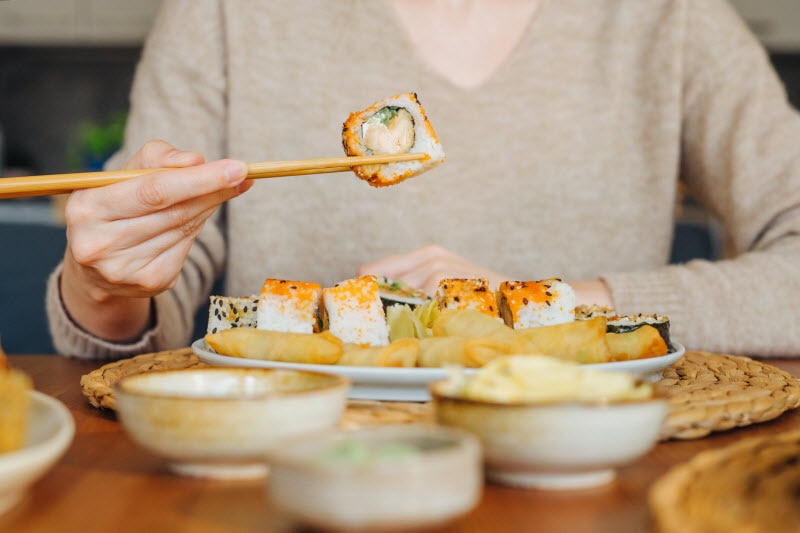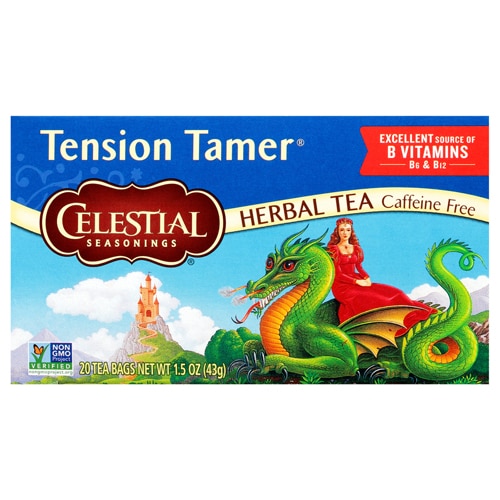We've long known that eating the right fish can help your heart. Now comes word that it might soothe your head as well.
People who regularly suffer from migraines can reduce the number of monthly headaches they experience and decrease headache intensity simply by eating more fatty fish,
according to researchers at the National Institutes of Health.

The new study compared those who ate a
diet rich in fatty fish to other study participants who consumed a diet higher in vegetable-based fats and oils.
At the start of the study, participants averaged more than 16 headache days per month, including more than five hours of migraine pain per headache day.
Compared to the control group, those who ate the diet higher in fatty fish and lower in vegetable-based fats and oils reported between 30% and 40% reductions in:
- Total headache hours per day
- Severe headache hours per day
- Overall headache days per month
The results of the study suggest that eating more fish might be one component of a plan to reduce migraine pain, says Dr. Lauren R. Natbony, an assistant professor of neurology and director of the headache medicine fellowship at the Icahn School of Medicine at Mount Sinai in New York.
Healthful fatty fish include
salmon,
sardines, cod, lake trout, light
tuna and others.
"Treatment of migraine is usually multifaceted," Natbony says. "Lifestyle and diet changes are a great adjunct to traditional medication therapy."
How to treat a migraine
Migraines are a common condition. They vary in intensity, but often are quite severe, and can include additional symptoms such as nausea, and sensitivity to light and sound.
The headaches are often so debilitating that they are considered to be one of the top sources of disability worldwide,
according to the Centers for Disease Control and Prevention.
For nearly two decades, an average of around 15% of Americans aged 18 years or older consistently have reported experiencing a migraine or severe headache in the previous three months,
the CDC says.
Typically, a person who experiences six headache days or more per month is probably a good candidate to visit a physician and start a daily preventative medication for migraine, Natbony says.
However, the need for treatment depends on the patient and the severity of the attacks. For example, treatment might be necessary for as few as three headaches per month for people who miss work or end up at the hospital because of their headaches.
Treatment itself varies. "Migraine treatment is both a science and an art, as there is a not a one-size-fits-all approach," Natbony says.
Headache specialists are specifically trained in the complexities and nuances of treating migraine. You can find such a specialist near you at the
American Migraine Foundation website.
Natural solutions for migraine relief
Besides eating more fish, there are
several things you can do to reduce the incidence and intensity of your migraine headaches. They include:
Exercising regularly.
Healthy lifestyle habits can improve and prevent migraine headaches, Natbony says. "Studies for migraine have shown that regular cardiovascular exercise for 30 to 40 minutes three to four days per week can be just as effective as a daily medication for the prevention of migraine," she says.
Eating consistently.
Those with migraine should eat regular meals throughout the day, every three to four hours, Natbony says. "Drops in blood sugar can be a trigger," she says. Studies have shown that breakfast is especially important, with protein-based breakfasts being most effective at reducing migraines.
Staying hydrated.
You should drink a minimum of 64 ounces of water every day, Natbony says. Drink around an additional 16 ounces of water for every half-hour of exercise.
Reducing stress.
Relaxation techniques such as
yoga, meditation and progressive muscle relaxation all have shown promise as ways to reduce both stress and the number of migraine headaches you experience. “
Stress is one of the most common migraine triggers,” Natbony says.
 The new study compared those who ate a diet rich in fatty fish to other study participants who consumed a diet higher in vegetable-based fats and oils.
At the start of the study, participants averaged more than 16 headache days per month, including more than five hours of migraine pain per headache day.
Compared to the control group, those who ate the diet higher in fatty fish and lower in vegetable-based fats and oils reported between 30% and 40% reductions in:
The new study compared those who ate a diet rich in fatty fish to other study participants who consumed a diet higher in vegetable-based fats and oils.
At the start of the study, participants averaged more than 16 headache days per month, including more than five hours of migraine pain per headache day.
Compared to the control group, those who ate the diet higher in fatty fish and lower in vegetable-based fats and oils reported between 30% and 40% reductions in:



